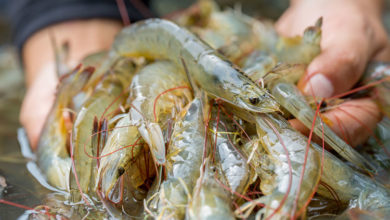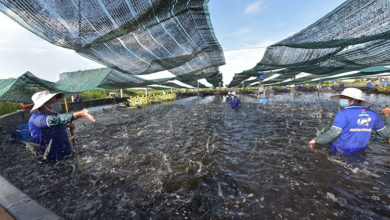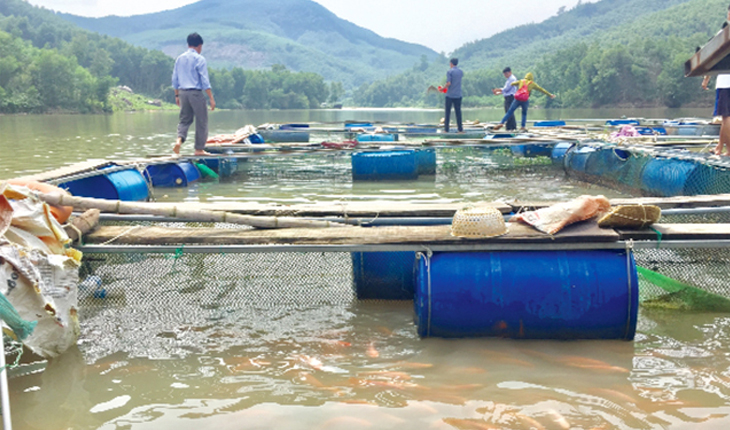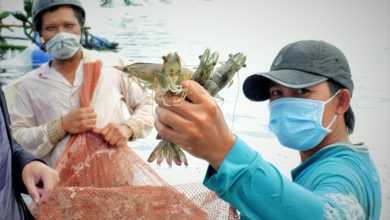Launch of “Blue Ocean – Blue Foods” program for selling marine carbon credits
On July 6, 2023, the International Collaboration Center for Sustainable Aquaculture and Fisheries (ICAFIS) under the Vietnam Fisheries Association, in partnership with JAPIFoods of WinEco Vietnam Joint Stock Company, launched the “Blue Ocean – Blue Foods” program. This initiative aims to create a marine carbon sink for the seafood industry, reduce greenhouse gas emissions, improve marine environments, and develop community livelihoods.
Seaweed – A gift from the ocean
The program aims to mitigate climate change impacts, lower greenhouse gas emissions, enhance the marine environment, and support community livelihoods. Seaweed, which grows 30-60 times faster than terrestrial plants, can absorb 2.4 times more CO2 than land plants. Additionally, the long molecular chains in seaweed are ideal for producing plastic alternatives, with some bioplastics already available on the market.
Mass production of seaweed and oysters for human consumption, animal feed, additives, pharmaceuticals, fertilizers, and food additives could significantly alter global food security and safety.
Lap stated that the “Blue Ocean – Blue Foods” program focuses on encouraging responsible participation from stakeholders to mitigate climate change impacts, improve marine environments, and support community livelihoods. The program aims to raise coastal community awareness about climate change and marine environment protection.
The program consists of three key activities:
- Community awareness: Promoting awareness about climate change and marine environment protection.
- Corporate ESG engagement: Involving businesses in environmental awareness campaigns, beach cleanup programs, and coastal livelihood development.
- Sustainable economic chain: Encouraging businesses to engage in sustainable aquaculture linked to seaweed cultivation in Vietnam, forming a circular economic chain of investment, cultivation, and consumption of seaweed. This includes establishing the “Blue Foods Alliance” for responsible seafood.
Carbon credits
Nguyen Thi Sam, Director of JAPIFoods, emphasized the program’s significance for the environment, society, communities, and businesses. JAPIFoods will collaborate with ICAFIS to provide free seaweed seedlings to coastal fishing communities and purchase harvested seaweed to create a comprehensive and responsible circular economy.
Tran Dinh Luan, Director of the Fisheries Department (Ministry of Agriculture and Rural Development), noted that the program would significantly improve livelihoods, promote seaweed farming, and help reduce climate change. He mentioned that there are many coastal areas in central Vietnam suitable for seaweed farming, which can absorb CO2 up to 20 times more. Some seaweed types, after extracting important substances, can provide excellent feed for dairy cows. Hence, developing carbon credits for seaweed could increase the economic value of seaweed.
According to Vietnamese scientists, there are over 887 species of seaweed, with 90 species having economic value. In 2023, the seaweed farming area reached about 16,500 hectares, producing 150,000 tons of fresh seaweed. Seaweed and oyster farming is growing as a profitable business in coastal provinces, providing food, processed food, cosmetics, and medicine.
VFM






